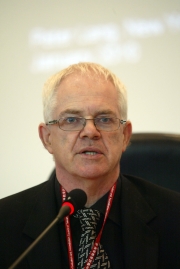Abstract / In an era in which the market rules the mind, and neoliberal policy economics dominate government thinking about higher education, public goods and the generic ‘public good’ are mostly under-valued, under-observed, under-measured and under-financed. This includes not just national public goods but global public goods, and it includes relational goods that build social rights and solidarity (‘common goods’), such as equal social opportunity through education, and the role of higher education in building tolerance and understanding. The paper develops a new framework for defining and monitoring public goods in higher education. The framework combines the public/private distinction used in economics—where public goods are non-market goods, goods that cannot be produced for profit because they are non-rivalrous and/or non-excludable—with the orthodox understanding in political theory of ‘public’ as the sphere of state production or control. Taken together the two approaches create an analytical framework with four quadrants (civil society, social democracy, state quasi-market, commercial market) which are applied to higher education and research. The paper also discusses the challenge of comparing public goods in higher education in different countries.

